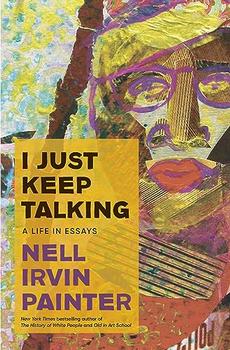Summary | Excerpt | Reviews | Beyond the Book | Readalikes | Genres & Themes | Author Bio

A Life in Essays
by Nell Irvin Painter
I live with the insults of the era of segregation; the grudging, thrown-togetherness of my parents' college, even though its little library inspired me before I was born; the economic scrimping of my family in the early 1950s to purchase our first home at Sixty-First Street and Telegraph Avenue in Oakland, because the Federal Housing Administration did not extend its favorable mortgages to African Americans. The automatic discounting of one's worth.
As a historian and as a visual artist, I have prospered, thanks to hard work and essential allies all along the way. But I know, I have seen, how the habits of sexism and racism discouraged others, and how the injuries of class held other women back, even held them down. In my final analysis, my own personal sorrow for my country's ways with race traces back less to slavery than to what came after in the decades of cruelty, extending into my own life.
I want to tell you some crucial things about me that have influenced my life's choices and, thereby, my work-what I have written as I have just kept talking over the course of more than fifty years and the fact that nowadays my talk is visual as well as verbal. How and why I stress specificity-individual specificity, geographical and chronological specificity-rather than generalization; as I read the past, one person cannot simply be substituted for another merely on account of sex or race. Just because I cannot know one person doesn't allow me to put another in her place. Knowing what, say, Harriet Tubman said or did doesn't let me assume the same for, say, Sojourner Truth. That said, I want to tell you when and where it was and with whom I was when my shaping, my molding, took place.
My family's roots reach back into Ascension, Baton Rouge, and St. Landry Parishes, Louisiana; low country South Carolina around Charleston; and Harris County, Texas. A century ago, their names-McGruder, Donato, Lee, Irvin, Ashley-might have meant something, might have conveyed relative standing (McGruder, Donato, Lee) or not (Irvin, Ashley I don't know about). So far as I know, all but two of my ancestors were of African descent. My father's parents were Edward Irvin, an exquisitely skilled locomotive machinist, and Sarah Lee, a housekeeper. She, a very dark-skinned Geechee originally from a low country of South Carolina farming family who sought opportunity in Harris County, Texas. My grandfather, a half-White bastard, a Texan born and bred. I met my Irvin grandparents only once, on a trip back to Spring with my father when I was a girl. I returned to Spring twice later, after their deaths, once during my dissertation research trip in 1971 and again during my book tour in 2018. In 1971 Spring was still very rural, still famed for the excellence of its white lightnin' whisky, whose excellence I can attest to.
In 2018 Spring still had fields and cattle whose days were numbered as Houston's suburbs encroached. The little house where my father grew up was still there in 2018, still with a horse in the yard, right beside the railroad tracks, but on the wrong side, the side away from the little (White) town center that now strives to market itself as a railroad tourist destination. My grandfather was a skilled machinist but was always classified as a machinist's helper, even as he had to train the White man who became his boss. My grandfather's half Whiteness wasn't enough to get him paid as a machinist, and my grandfather is the main reason I could never share the distinguished historian David Montgomery's fondness for American machinists.
My mother's father, Charles Hosewell McGruder, originally from Ascension Parish, was a professor at Straight University in New Orleans (now within Dillard University) who married Nellie Eugenie Donato, a pretty, light-skinned-enough-to-pass student from St. Landry Parish, in 1902. She was a descendant of Donato Bello from Naples, Italy. By the 1930s Charles McGruder was one of Houston's leading Colored men; he died before my parents' marriage of "aggravated indigestion," caused, I reckon, by tiptoeing between Black and White Houstons in the 1920s and 1930s. In the late 1940s Nellie McGruder-"Maman"-came to live with us for a while. I remember her as a mean, paper-colored old woman who thought me ugly and trouble-bound because I was dark-skinned. My mother wrote about her difficult relationship with her mother in a memoir, I Hope I Look That Good When I'm That Old (2002). Maman spent her days with us crocheting funny-looking multicolored doilies, which we threw away as soon as she left. Did I, a knitter, inherit her needlework vocation?
Excerpted from I JUST KEEP TALKING by Nell Irvin Painter. Reprinted by Doubleday, an imprint of the Knopf Doubleday Publishing Group, a division of Penguin Random House LLC. Copyright © 2024 by Nell Irvin Painter.
A library is thought in cold storage
Click Here to find out who said this, as well as discovering other famous literary quotes!
Your guide toexceptional books
BookBrowse seeks out and recommends the best in contemporary fiction and nonfiction—books that not only engage and entertain but also deepen our understanding of ourselves and the world around us.